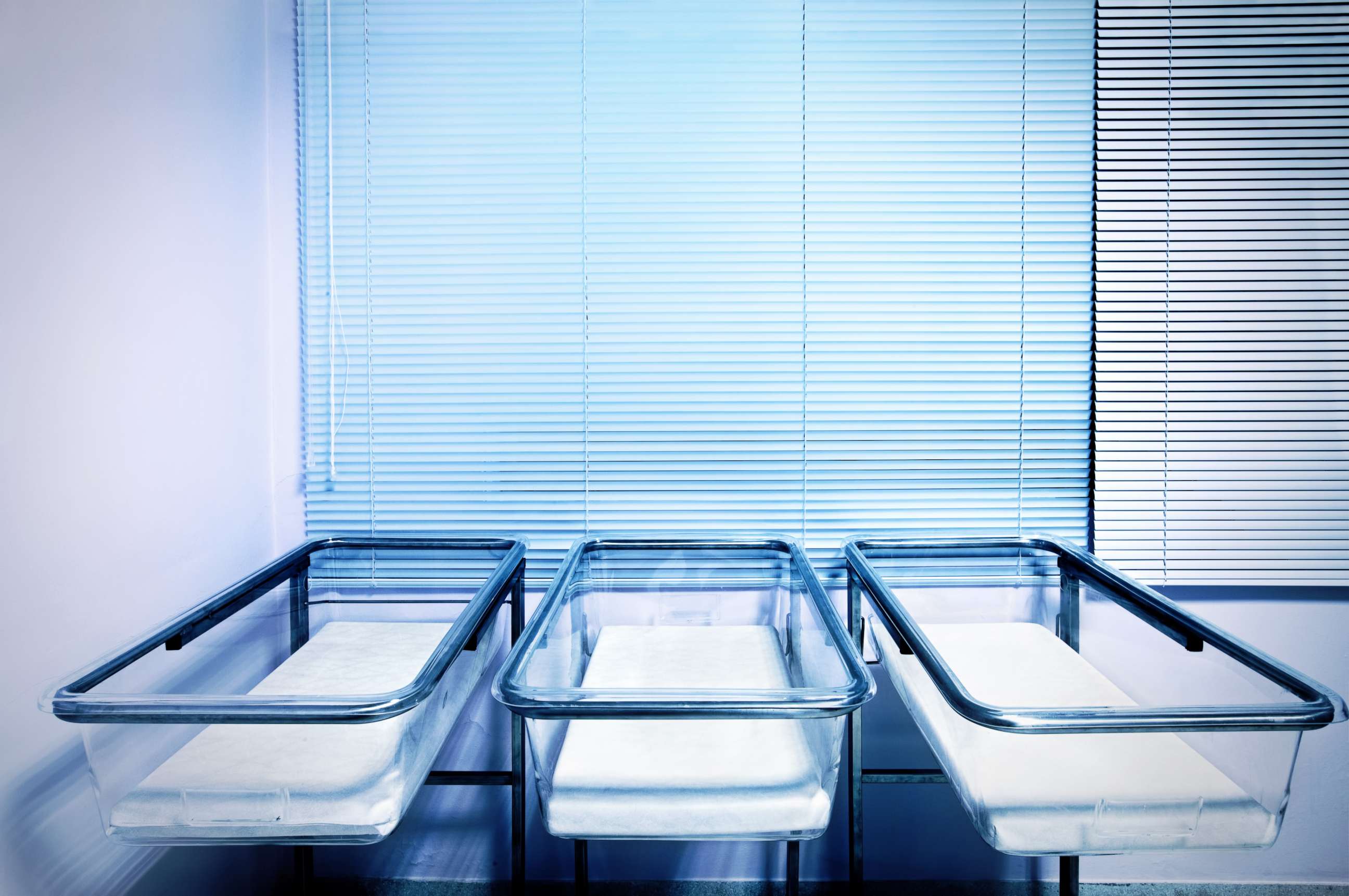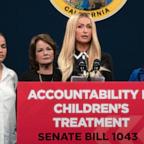'COVID baby bust' expected to hit the US as economic and health fears grow
The coronavirus pandemic represents a type of double threat to birth rates.
The number of babies born in the United States in the coming months and years is expected to fall sharply because of the coronavirus pandemic, according to two new studies.
The U.S. could see as many as 300,000 to 500,000 fewer births as early as next year in what researchers are calling a "COVID baby bust."
"I think casual conversation that people have about this is, ‘Everyone is stuck at home and can only watch Netflix for so long so maybe births are going to go up,'" said Phillip B. Levine, a professor of economics at Wellesley College. "It’s a cute, romantic version of the way the world works but people are more complicated than that."
"Between concerns about job loss, economic well-being, health status, social distancing, anxiety, stress, a lot of things in the world ... this is really not a great time to be having a baby right now," said Levine, the author of the new report with fellow economist Melissa S. Kearney that predicts the so-called "COVID baby bust."
Levine and Kearney went back to two other inflection points in U.S. history -- the Great Recession of 2008 and the 1918 flu pandemic -- to help predict what birth rates may look like post coronavirus. In the cases of both the recession and the flu pandemic, birth rates declined and remained at lower levels in the years and decades after.
"You have this social setting where people were responding to a health crisis by having fewer babies when it was a lot harder to control how many babies you were having and the economic concerns were nowhere near as great as they are today," Levine said of the outcome of the 1918 flu pandemic, while also noting that the birth rate in the U.S. dropped about 9% during the 2008 economic downturn. "And more people are unemployed today than were during the Great Recession."
The coronavirus pandemic then represents a type of double threat to birth rates, with parents worried about both economic security and health concerns.

Women in particular are already speaking out about how the coronavirus pandemic is shifting their opinions on having children.
One-third of women say they wanted to get pregnant later or wanted fewer children than they had before the pandemic, according to a new study released Wednesday by the Guttmacher Institute, a research group that supports abortion rights.
"The pandemic isn’t just about [COVID-19] and the pandemic just isn’t about the economic challenges and it hasn’t even just been about how do I get my groceries," said Laura Lindberg, Guttmacher's principal research scientist and one of the study's authors. "It’s about how do I keep my family safe and achieve their well-being and for many women that well-being is around the decision whether or not to get pregnant and how do they get to do that."
The Guttmacher study, which surveyed 2,000 women in May, also found that more than half of women said they or someone in their household lost their job or had reduced work hours because of the pandemic. And more than 40% of women who felt financially worse off due to COVID-19 said they faced increased barriers to contraception and other care, according to Guttmacher.
"Access to contraceptive methods and care and other reproductive health care has been difficult to access physically and there are concerns about being able to afford it," said Lindberg. "We’re talking about a public health crisis that’s really impacted people’s private lives."
Both Levine and Lindberg agreed that recovery from the pandemic, both economically and health-wise, is likely to be slow.
That too is a recipe for decreased birth rates later on, according to Levine.
"What we think we’re seeing here will be an event where births go down in the short term and those births won’t be replaced in the long term," he said. "The number of children you have during your childbearing years, that will go down."
The implications of a decreased birth rate affect everything from the education system to Social Security benefits, noted Levine.
"If there’s a dramatic decline in births next year, five years from now school enrollments are going to go way down and all the way through that’s going to affect the educational system," he said. "Those kids get older, they turn age 20, and suddenly the number of workers entering the labor force goes down and that has implications for economic activity because more workers means more economic output."
"We have a Social Security system that’s based on younger people paying taxes that cover the benefits of older people, of retirees, so the fewer workers, the less resources available to pay those benefits," Levine added. "I think [a decreased birth rate] has very significant implications for longer term societal outcomes."




